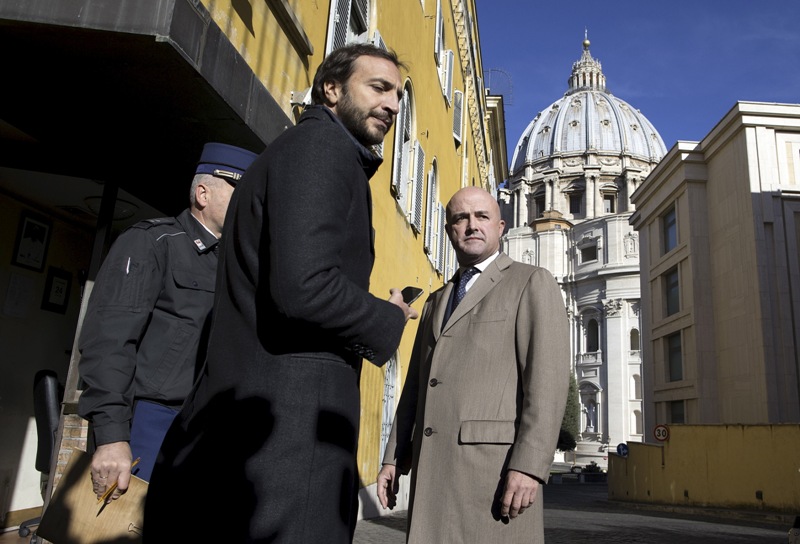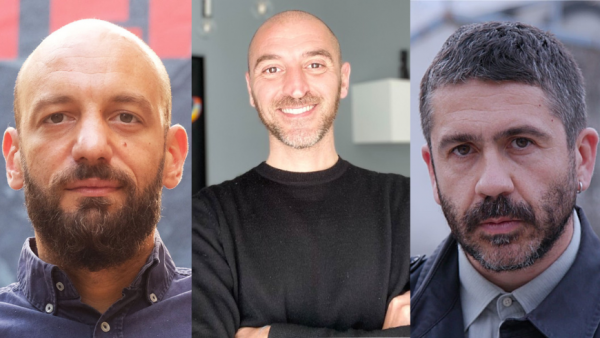The International Press Institute (IPI) today called on Vatican City to drop criminal charges against two Italian journalists it accuses of publishing classified information in books that have cast the city-state and the Catholic hierarchy in a harsh light.
A Vatican judge earlier this week ruled that the case against Emiliano Fittipaldi and Gianluigi Nuzzi, whose respective books Avarice and Merchants in the Temple alleged rife mismanagement and corruption in the Vatican, would go forward. The books’ claims are reportedly based in part on documents leaked to the journalists by Vatican insiders. A Spanish priest and two former members of a Vatican commission on economic reforms are facing charges in connection with the leak.
Fittipaldi and Nuzzi are said to be the first journalists in history to be put on trial in the Vatican. If convicted, they could face up to eight years in prison.
Both journalists have rejected the accusations against them and have insisted they were only doing their job. “This is a trial against freedom of the press”, Fittipaldi said in an interview with AP. “In no other part of the world, at least in the part of the world that considers itself democratic, is there a crime of a scoop, a crime of publishing news.”
IPI Director of Press Freedom Programmes Scott Griffen said the Vatican’s decision to prosecute Fittipaldi and Nuzzi demonstrated a lack of understanding about the role and rights of the media in modern society.
“Journalists have the right to publish information that is of public interest and that does not change when that information appears in classified documents that have been leaked to them. The content in this case is of obvious interest not only to citizens of the Vatican and the Holy See, but also to the more than one billion practicing Catholics worldwide and others who recognise the Vatican’s influence in global affairs.
“The prosecution of Mr. Fittipaldi and Mr. Nuzzi is a serious attack on press freedom that should not be occurring in the middle of Europe. It suggests, moreover, that the Vatican is intolerant of public scrutiny. We urge authorities to immediately drop the charges against both journalists and to update Vatican legislation to guarantee the right of journalists to do their job.”
The Vatican City is one of only three European countries, together with Belarus and Kazakhstan, that are not a party to the European Convention on Human Rights, which guarantees freedom of expression.
Fittipaldi and Nuzzi are being prosecuted under a new law passed by Pope Francis in 2013 that criminalises the leaking of confidential information and publishing news based on such information. The law followed the 2012 Vatileaks scandal, which also involved the publication of unsavoury allegations regarding the Church.
The Vatican has reportedly refused to allow the defendants to hire their own lawyers and assigned them court-appointed attorneys. During a break in the trial, Nuzzi, who had previously published confidential Vatican letters and memos in his book His Holiness: The Secret Papers of Benedict XVI, a central focus of the 2012 affair, stated that he had not met with his court-appointed lawyer until an hour before the trial began.
He added: “I haven’t been allowed to read the charges against me. The trial is absurd, Kafkaesque. I appeared in court because I wanted to look the judges in the eye. I have no fear, I have nothing to hide and I have committed no crime.”
Pope Francis has not denied the accuracy of the documents cited by Fittipaldi and Nuzzi, but has said the issues are old and have been resolved through Francis’ reforms.
Since the journalists are not Vatican City State citizens, any sentence is expected to involve an extradition request. Both journalists, however, have told local media they believed no Italian judge would extradite them, given that press freedom is guaranteed by the Italian constitution.



